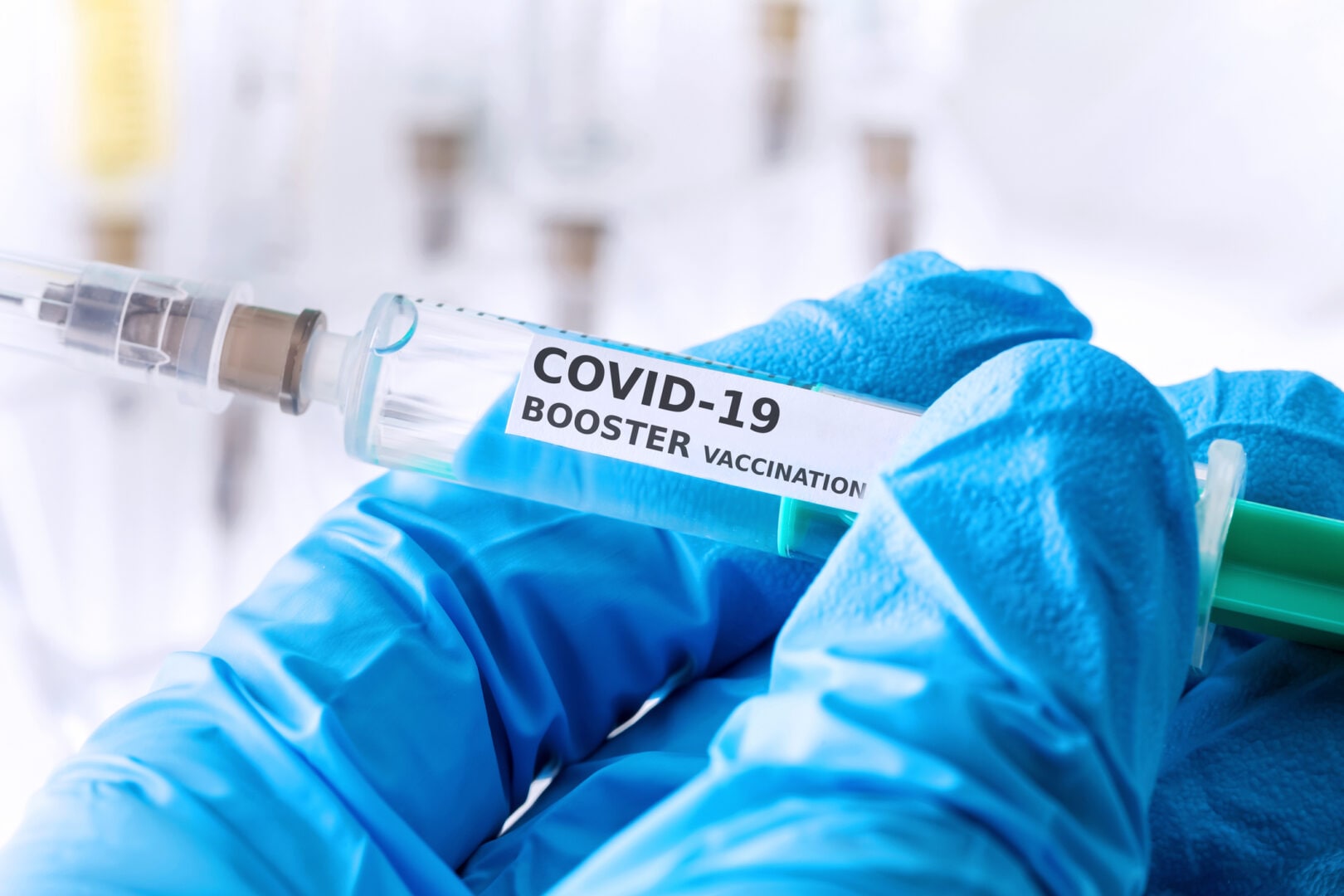As we head into yet another fall season with a high number of COVID-19 cases, the Centers for Disease Control and Prevention (CDC) is recommending that COVID booster shots be administered this fall to bolster protection against the virus. In August, the CDC authorized the use of additional doses of mRNA COVID-19 vaccines made by Pfizer and Moderna. The shots are expected to roll out in late September, but details on when and where to get the jabs have been difficult to pin down.
If you’re a senior looking for information on where to get your additional shot or a loved one or caregiver trying to find the latest news on boosters for the aging people in your life, here’s everything we know so far about the COVID vaccine boosters.
Who gets a COVID vaccine booster shot?
The COVID boosters were initially authorized for immunocompromised people, with additional authorizations expected later in the fall. In a joint statement on August 18, Dr. Rochelle Walensky, director of the CDC, said, “We are prepared to offer booster shots for all Americans beginning the week of September 20 and starting 8 months after an individual’s second dose.”
While Moderna and Pfizer vaccines are included in this authorization, the CDC says there is not enough data to know if those who received the Johnson & Johnson vaccine will need an additional dose. Recent reports also indicate the U.S. may not meet their September 20 deadline to begin offering the shots to all Americans. The AP reports Moderna’s booster shots may not be ready in September, and the Food and Drug Administration’s (FDA) scientific advisers are scheduled to review evidence from Pfizer as late as September 17.
When boosters are approved, the CDC says it’s likely residents of long-term care facilities and other seniors would be among the first groups to receive them.
Why do seniors need COVID-19 vaccine boosters?
Vaccines continue to offer strong protection against COVID-19, but booster shots are being recommended due to the ongoing emergence of new variants and concerns over waning vaccine efficacy. One CDC study of frontline healthcare workers found vaccine effectiveness may have declined by as much as 30% as delta emerged as a dominant strain.
A preprint study released by the CDC in August shows vaccinated seniors and those with underlying conditions are more likely to experience severe symptoms if rare breakthrough virus cases do occur. Among vaccinated adults hospitalized with breakthrough infections during the study period, the median age was 73 and about 71% had three or more underlying conditions.
Israel began a Pfizer booster shot program in August. An analysis of data from Maccabi Healthcare Services in Tel Aviv shows booster shots increase vaccine effectiveness to 48-68% within seven to 13 days after a patient receives the third shot. Between 14 and 20 days later, vaccine effectiveness increases to 70-84%.
Where can seniors get a vaccine booster?
Right now, there is no clear path for most seniors to receive an additional dose of the COVID vaccine until further guidance is issued by the CDC and the FDA. Once the shots are ready, they are expected to be available at the same locations where seniors received their initial two doses.
As the delta variant continues to surge in the U.S., some concerned leaders are putting pressure on federal and local governments to speed up the approval process. In late August, Kansas Senator Roger Marshall sent a letter urging the federal government to authorize COVID vaccine boosters for seniors before September 20. The AARP of Alabama also sent a letter to their governor asking for a rush on authorization for seniors.
In Maryland, Governor Larry Hogan took matters into his own hands and announced Wednesday, September 8, that all adults 65 and older who live in congregate care settings are eligible for an immediate booster shot.
Why is it taking so long for COVID boosters to be approved?
Major health organizations are still working to determine the full impact of the delta variant on vaccine efficacy and how much additional protection booster shots can offer. There are also ongoing concerns about vaccine inequality and whether it’s the right time to offer Americans additional shots.
Around 70% of high-income countries have reached initial vaccination targets, but no low-income countries have. The World Health Organization (WHO) has called for a pause on extra doses until low-income countries are able to administer more initial doses to their citizens.
“I’m calling for an extension of the boosters moratorium until at least the end of the year to enable every country to vaccinate at least 40% of its population,” Dr. Tedros Adhanom Ghebreyesus, the director-general of the WHO, said at a media briefing on September 8.
Despite ongoing delays and continued data analysis, Dr. Anthony Fauci, director of the National Institute of Allergy and Infectious Diseases and chief medical advisor to President Biden, says he believes booster shots will become a part of the routine COVID-19 vaccine regimen for all Americans. “The data are really, really clear that you need a booster and boosters work,” he says.





